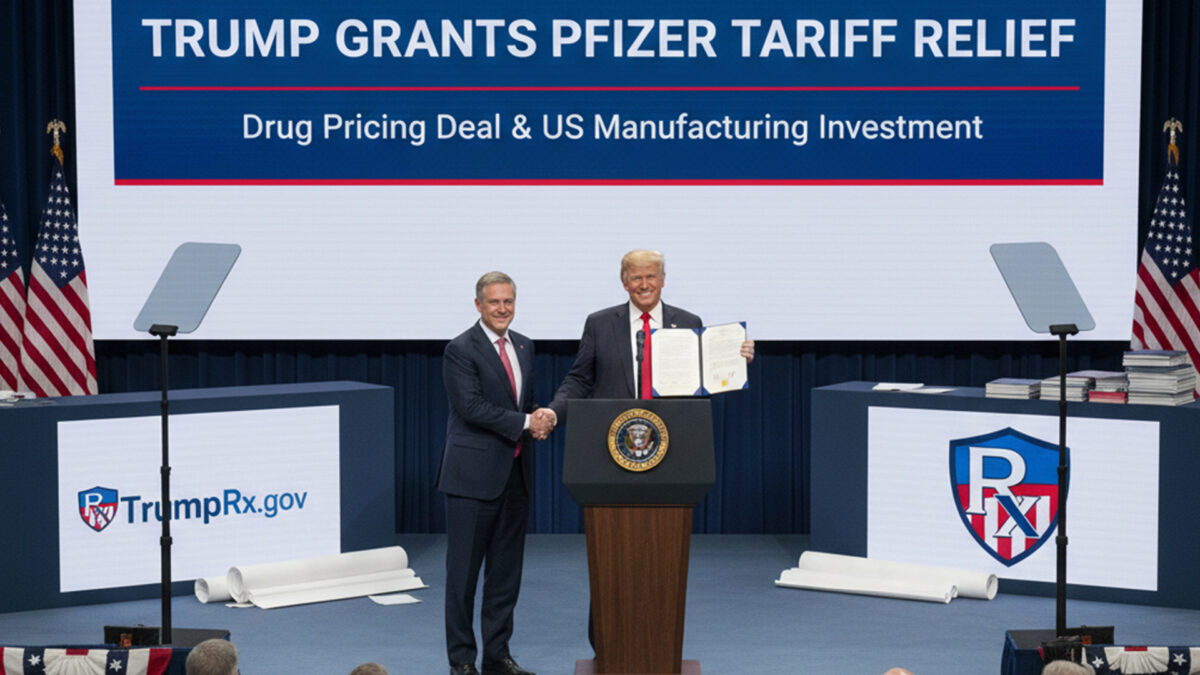U.S. President Donald Trump announced a significant agreement with Pfizer to reduce prescription drug prices for American consumers.
Under the deal, Pfizer will offer many of its primary care and specialty medications through a new government purchasing platform, TrumpRx.gov, at discounts averaging 50% and reaching up to 85%. In return, Pfizer will receive a three-year exemption from tariffs proposed under a national security investigation into pharmaceutical imports.
The agreement also includes a commitment from Pfizer to invest $70 billion in U.S. manufacturing and research and development over the next few years. Additionally, Pfizer has pledged to provide all its prescription medications to Medicaid at “most-favored nation” prices, aligning U.S. Medicaid prices with those in other developed countries.
The TrumpRx platform, set to launch in early 2026, will serve as a direct-to-consumer website allowing Americans to purchase medications at discounted rates negotiated by the government. Pfizer’s participation in this initiative is expected to lower drug costs domestically while boosting pharmaceutical revenues internationally. The agreement is part of the administration’s broader efforts to align U.S. drug prices with those in other developed nations.
This deal marks a political and policy win for President Trump, contrasting his administration’s efforts to lower drug prices with Democrats’ healthcare proposals. Other pharmaceutical companies are reportedly considering similar strategies in response to the administration’s initiatives.
Pfizer’s stock experienced a nearly 5% increase following the announcement, reflecting investor confidence in the company’s new pricing strategy and tariff relief.
The agreement is expected to begin benefiting consumers in 2026, with the potential to significantly reduce out-of-pocket costs for prescription medications. However, experts caution that the full impact remains uncertain due to limited details on pricing terms and the scope of the discount programs.
This development is part of a broader effort by the Trump administration to address rising drug prices and reduce U.S. subsidies for global healthcare costs. The administration has indicated that similar agreements with other pharmaceutical companies may be forthcoming.
